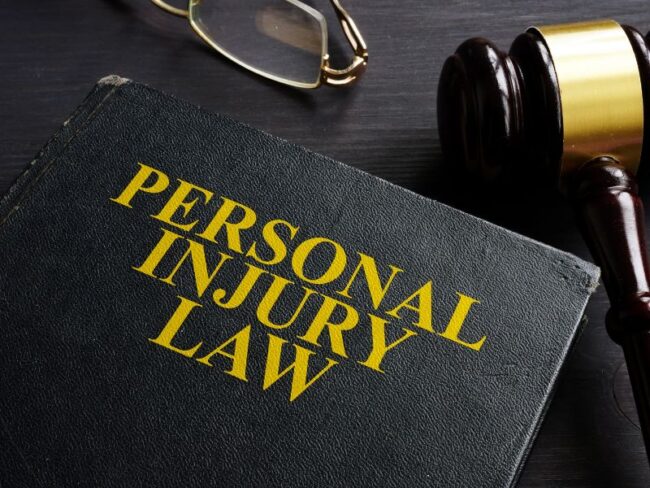If you’ve had the misfortune of being bitten by a dog, besides the obvious—ouch!—you might be considering taking legal action. This guide is going to walk you through the ropes of documenting your dog bite so you can have your day in court, without feeling like you’re trying to solve a Rubik’s cube blindfolded. Let’s break it down into manageable chunks and make sure you have everything you need to bring Fido’s owner to justice—or at least cover your medical bills.
Get Medical Attention First

First things first: get yourself to a doctor and check out injured.ca! Not only is this crucial for your health, but it’s also the first step in documenting your injury legally. When you get medical treatment, you’re creating an official record of the extent of your injuries and the care required, which is solid gold in the legal world. Your doctor will jot down all the nitty-gritty details about your bite—how deep it is, if there’s a risk of infection, and whether you’ll need shots or stitches. This info becomes a cornerstone of your legal claim.
Gather Evidence Like a Pro
Think of yourself as the Sherlock Holmes of dog bite documentation. Start by snapping photos of your injuries. And I mean lots of photos, from every angle, and over multiple days. This shows how the bite evolves, how it heals, and what kind of colorful bruises start to decorate your skin. Also, take pictures or videos of the location where the incident occurred. If there were “Beware of Dog” signs, get those in your shots too.
Now, if there were any witnesses, get their info faster than you can say ‘rabies shot.’ Names, phone numbers, and addresses—if they’re willing to provide that—can help immensely. A statement from someone who saw the whole ordeal can back up your story big time.
Police Reports Are Your Friend

Did you call the cops? If not, you might want to consider it. Filing a police report might seem like you’re turning a personal injury into an episode of “Law & Order,” but it’s actually a powerful piece of documentation. It formally outlines the details of the incident and gets your complaint on the record. Plus, the police might provide additional information about the dog, like if it’s had previous incidents of being more bite-y than bark-y.
Keep a Diary
No, this isn’t for your deepest, darkest secrets—this is a pain diary. Sounds fun, right? Every day, write down your pain levels, any medications you’re taking, how the injury is healing, and how it’s affecting your daily life. This kind of ongoing record can help illustrate the long-term impact of the bite and can be very persuasive in court or in settlement discussions.
Dog Owner Liability
Before you march down to the courthouse, get a handle on dog owner liability laws in your area. These can vary wildly. Some places have a “one-bite rule,” where owners are off the hook if their dog hasn’t shown aggression before. Other areas operate under strict liability, where the owner is responsible, no ifs, ands, or buts, if their dog bites someone.
You also need to consider if there were any circumstances that might limit the owner’s liability—like if you were trespassing or provoking the dog. Knowing these details can help you gauge the strength of your case.
Consult a Legal Eagle

Finally, don’t go it alone. Dog bite laws can be as complex as a double mocha frap order with 15 customizations. Meeting with a personal injury attorney who knows the ins and outs of dog bite claims in your state is like having a guide in a legal jungle. Many offer free consultations, and they work on contingency, meaning they only get paid if you win. So, it’s in their best interest to give you a solid shot at winning.
A lawyer can help you gather additional evidence, negotiate with insurance companies, and, if it comes to it, represent you in court. They can turn your pile of photos, diaries, and reports into a compelling story that makes your case.
Continuing from where we left off, taking legal action after a dog bite isn’t just about compensation; it’s about accountability and safety. Below are additional steps and considerations to help you navigate this challenging process effectively.
The Importance of Medical Follow-Up
In the realm of dog bites, the story doesn’t end with your initial visit to the doctor. Follow-up care is crucial, not only for your health but for your legal case as well. Continue to visit your healthcare provider according to their recommendations. This can include check-ups, rabies vaccinations if the dog’s health status is unknown, and treatments for any complications like infections.
Each visit generates further medical documentation, which is vital when you’re building a case. It provides a clear, professional assessment of the injury’s progression and your recovery process. This ongoing medical record is irrefutable evidence of the impact of the bite and helps in substantiating your claim for damages related to medical expenses, pain, and suffering.
Leveraging Expert Testimony

Sometimes, your case might need a bit more oomph to convey the seriousness of the injury or the negligence of the dog owner. This is where expert testimony comes in. Experts in animal behavior, reconstructive surgery, or even psychological trauma can provide authoritative voices that lend weight to your claims. They can offer insights into how the attack was unprovoked, the potential for future psychological impact, or the complexity of your medical treatment.
Involving experts can certainly add to the cost of your legal endeavor, but their testimony might be the linchpin for a successful claim, especially in cases where the extent of the injury or the circumstances of the incident are being contested by the other side.
Navigating Settlements
Many dog bite cases never see the inside of a courtroom; they’re settled out of court. Understanding the settlement process is crucial. Settlements can provide a quicker resolution and guaranteed compensation without the uncertainty of a trial. However, they also require savvy negotiation to ensure you’re not short changing yourself.
Your attorney will be instrumental in this phase, using all the documented evidence to justify your settlement demands. This negotiation is not just about quoting a high number but substantiating why you deserve this amount based on your documented medical expenses, lost wages, pain and suffering, and any future medical care you might need.
